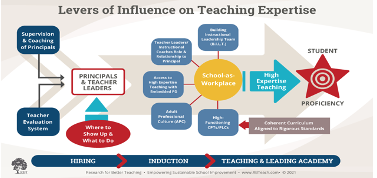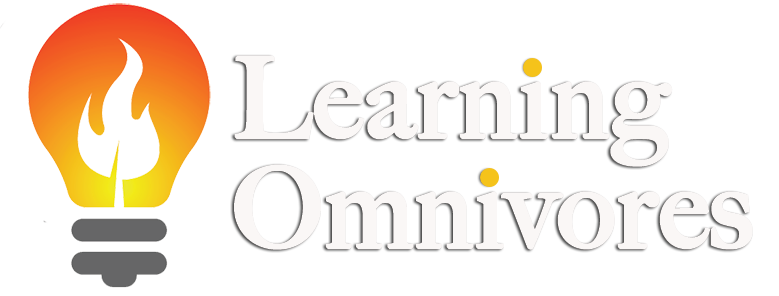Disrupting the Teacher Opportunity Gap
Disrupting the Teacher Opportunity Gap by Jon Saphier
A Book for Educational Leaders
This is a book about the complicated and multi-faceted work of improving teaching expertise, because the expertise of individual teachers is the most powerful variable we have – by far — for improving student results. So what is set forth in the book is what leaders can do now at both district and school level to accomplish this superordinate goal. This is an action handbook for leaders who want systemic, and above all, sustainable improvement of teaching.
It is easy to miss the huge and powerful impact on leaders of this unusual book. Each individual chapter gives perspective on an important aspect of leadership and guidance on how to improve it, aspects like teacher evaluation, how to grow courage, make difficult decisions, build effective Common Planning Time teams, supervise principals, craft the potentially powerful role of instructional coaches, build a strong Adult Professional Culture…and a dozen other such separate topics. But this not a book about separate topics. It is a book about systemic improvement of high expertise teaching. The whole comprises an integrated plan for making High Expertise Teaching the overarching goal of improvement for any district, and how to do it. Teaching expertise is the Trojan horse of education reform. If we get that one through the gates, everything else that is good can follow…. but otherwise, not.

Key ideas in the book
High Expertise Teaching is the prime variable in student achievement, dwarfing all others.
The knowledge and skill base for successful teaching and leading is far more extensive and more complex than our policy makers or public realize. It is comparable to the knowledge and skills required for high-level practice in architecture, law, of engineering.
There is nothing as complex and demanding as interactive classroom teaching.
The vast majority of our teachers and leaders have been denied access to learning large chunks of this knowledge base through no fault of their own. (See chapter 2)
The chunks they have been walled off from include some of highest-leverage skills that produce student learning. Therefore the majority of our children receive mediocre teaching.
Examples of teaching expertise include items the public doesn’t usually think about. Here is just a tiny sample of a huge number of research validated skills that are absent:
- Getting all the students clear on exactly what they are supposed to learn in a lesson and what good performance would look like if they did. Writing an objective on the board does not do it.
- Giving students detailed and timely feedback on their work that points them precisely at what to improve
- Getting discouraged, low performing students to believe in themselves and learn how to exert effective effort
- Building a classroom community where students support one another
- Teaching students efficient study skills
- Knowing the learning progressions for concepts and skills within the academic disciplines
- Analyzing student errors to find out what exactly went wrong
- Making it safe to make mistakes and risk difficult tasks
- Re-teaching differently when frequent checking for understanding reveals gaps
- Building relations with students of regard and respect
- Connecting learning experiences with students life experience
- Giving students choice and voice in the conduct of class life
Examples of leadership expertise include items the public doesn’t usually think about either (See Chapter 15). Here is just a tiny sample of a huge number of research validated skills that are not part of principal preparation or accountability:
- Skill for developing a strong Adult Professional Culture across the faculty of constant learning, appropriate humility and non-defensive examination of practice in relation to student results.
● Being able to recognize the most important elements of successful teaching, their presence, absence or missed opportunities for using them during classroom visits
- Differential conferencing skills to implement supervision across the continuum of directive to non-directive as appropriate for individual teachers
- Orchestrating change for improvement with a balance of pressure and positive facilitation and the capacity to build political support.
- Knowing how to uncover and dismantle implicitly racist practices and policies
The teacher opportunity gap has huge consequences for our students, especially poor students and students of color.
The phrase “Opportunity Gap” for students is a way of accounting for what has been referred to as the Achievement Gap between white middle class students and students of color and students living in poverty without blaming the students or their families. “Opportunity Gap” posits that there is nothing wrong with the students; they have not had the opportunity to learn that advantaged students have. The opportunities they have been denied are well-resourced schools and access to expert teachers. If they had these resources they would be doing as well as advantaged students. We could actually collapse the opportunity gap if we had wide-spread H.E.T. in under-resourced communities.
It’s being done….zip code and income and neighborhood do not pose insuperable obstacles. There are school districts that collapse the achievement gap/opportunity gap – 90/90/90 schools exist. (See Chapter 2.) But they often dissolve when the leader leaves.
The “Opportunity Gap” for teachers not only proclaims that our educators have been denied access to acquiring not only High Expertise Teaching, but also High-Expertise leadership,
That can be survivable for students who come to school very ready to learn, but is disastrous for children who come to school without the readiness of advantaged children.
- American educators are among the people most committed, unselfish and dedicated to service in our society. They honestly want to do everything possible for their students, and to improve their own practice, to get better, to hear useful feedback about their teaching from people who know what they’re talking about. We don’t need better people; we need to give the people we have the tools they need and want and that our children need and want.
- Black and brown children and children living in poverty can achieve proficiency. And they do, over and over again IF…1) they are taught by High Expertise Teachers and 2) the children are in a surround-sound school environment of high expectations, relationships and support that such educators create. The power of a great school is startling even without solving systemic poverty or neighborhood dysfunction. (See Education Trust website and Chapter 2.)
The primary job of the principal is teacher learning about better instruction. Leadership programs could focus on instructional leadership…in fact, must do so.
There are 12 processes that are potential levers of influence on teacher learning about H.E.T. But they don’t operate to increase teacher learning now. (See Chapter 2)
